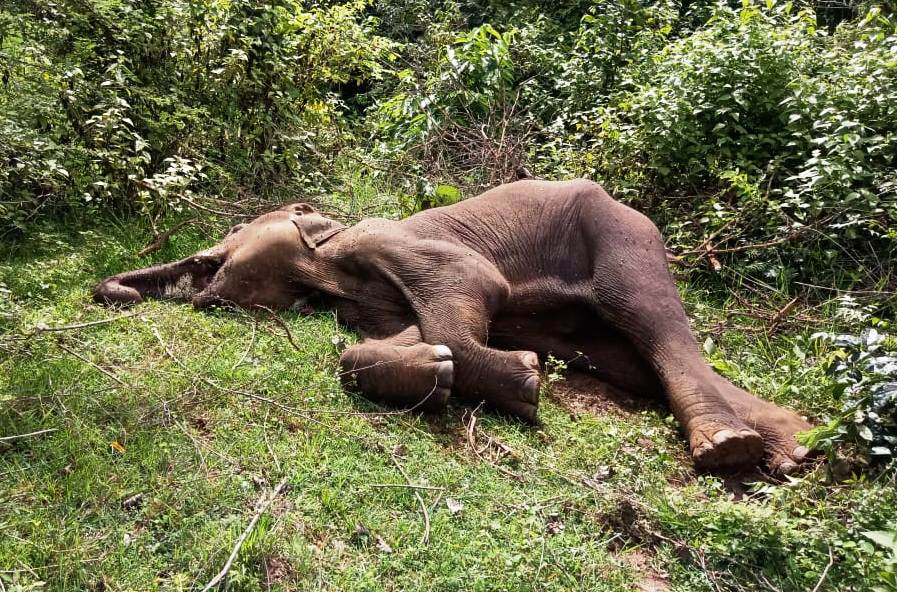Dhenkanal: A deadly spread of herpes infection has gripped jumbos in Dhenkanal reserve forest under Hindol range killing three and infecting many over the past one and half years.
The deadly disease is on the rise and with no precautions or preventive measures against the infection, the forest department is left in a limbo.
As jumbos are social animals, the probability of mass infections cannot be ruled out in the coming days. If the infection spreads, the species of elephants could become extinct from Hindol range, local intelligentsia said.
Between January 2019 and June 2020, three pachyderms had died under Hindol range due to herpes infection, of which one was a female and two others were calves.
Also read: No letup in jumbo deaths
The calf who died at Kapilash elephant rescue centre a year back was suspected to have had been infected from the herpes virus. The forest department officials did not clarify on the reasons of the calf’s death and tried to suppress the matter, according to a source.
Further, a female jumbo that died a few days back from Hindol range was infected with herpes virus, postmortem reports confirmed. It has been alleged that the forest officials despite having knowledge of the animal’s serious infection did not provide adequate treatment for its cure.
Similarly, another infected calf from the forest had infiltrated into Rasol region last year, had died to the Dhenkanal forest department’s apathy. Senior veterinary doctors from Satakosia had advised for immediate treatment of the sick calf. But the calf had died a day after being rescued owing to gross neglect by the forest officials.
Notably, a complete course of antiviral injection for herpes treatment costs around Rs 20,000 to Rs 25,000 in open market. It is alleged that the department is reluctant to purchase antiviral injection due to its high prices which has given rise to more number of jumbo infections in Dhenkanal.
Reacting to this, senior veterinary doctor of Satakosia sanctuary Dr Kishore Sahu said, “Generally, Asian elephants get infected by herpes-1 virus and their African counterparts by herpes-2 virus. Herpes-1 virus infection is fatal for calves and causes swelling of throat and mouth as well including wounds all over the body.
The jumbos fail to intake food and gradually become weak, thereby leading to their untimely death. In the absence of adequate treatment, an adult elephant usually dies within 24 hours and maximum 20 days of getting infected”, Dr Sahu expressed.
On being contacted, Dhenkanal divisional forest officer (DFO) Bimal Prasanna Acharya said, “We have informed the department high-ups about herpes infection found in female elephant that died of late”. He avoided the issue and did not comment further, as he has already been transferred to Nandankanan Zoological Park, Bhubaneswar”.
PNN
